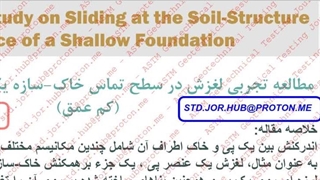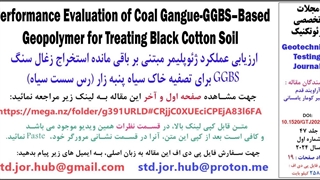
ASTM - GEOTECHNICAL TESTING JOURNAL
Performance Evaluation of Coal Gangue-GGBS–Based Geopolymer for Treating Black Cotton Soil - GTJ20220251
Black cotton soils are extremely problematic because they are susceptible to large volume changes with variation in moisture contents. These soils are conventionally stabilized with ordinary portland cement and lime, but the production/utilization of these traditional stabilizers is
highly energy intensive, involves quarrying, and emits large quantities of carbon dioxide (CO2) into the atmosphere. Geopolymer is a promising alternative to these stabilizers because it provides high strength, consumes low energy, and emits low CO2 during synthesis and application. In this study, geopolymers synthesized from coal gangue (waste generated during coalmining) and ground granulated blast furnace slag (GGBS; by-product from the iron and steel industry)
binders were evaluated for treating black cotton soil. A mixture of sodium silicate and sodium hydroxide is used as an alkaline activator solution for geopolymerization. An attempt is further made to identify the optimal dosages of geopolymer by evaluating the strength and durability
characteristics of geopolymer-treated black cotton soil mixtures.

نظرات (۲)